After three years of online-only organising, this year’s Fossil Free Gathering saw 50 grassroots activists passionate about climate justice coming together to share learnings about fossil fuel divestment campaigning, build connections, and develop the skills needed to win their local campaigns.
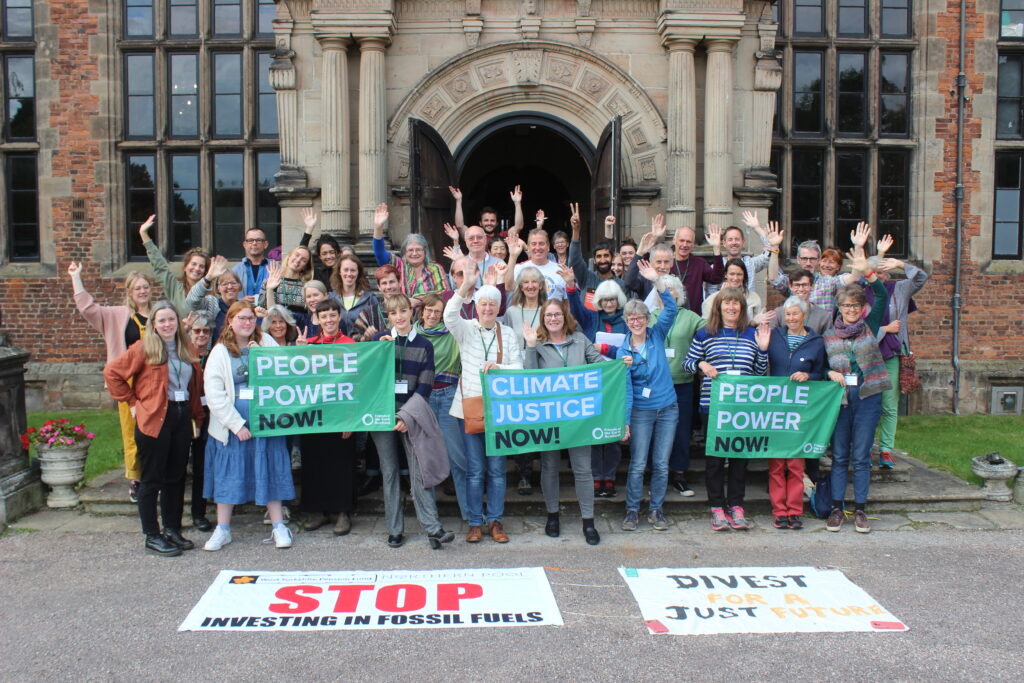
From 23rd-25th September 2022, we welcomed 50 activists from all across the UK to Ingestre Hall, Staffordshire for a weekend of fascinating discussions and peer-to-peer learning. This blog is a run-through of the weekend’s events, pulling together all the resources in one place.
Presentation slides and workshop resources
Click here to access all slides and resources from the gathering. Resources are organised by day and categorised by the name of the session.
Friday 23rd September
On Friday evening, we opened the gathering with a screening of The Oil Machine.
We followed the film with a discussion with James Marriott, one of the executive producers of the film. James is also the co-author of Crude Britannia, which the film is based on. For those who weren’t there, you might like to watch the launch event for the book’s publication in 2021.
After the film, Ric Lander (UK Divest) took a group on a tour of Ingestre Hall to explore the history of the venue, including the original owners’ links to slavery in Jamaica.
Saturday 24th September
We opened Saturday morning by reminding ourselves of the context we are living in. These slides are available under the heading ‘Saturday Welcome PPT’. In this session, we watched video messages from allies from Grace (Uganda) and Bill (USA), both of which can be found in the Drive folder alongside more video messages sent from allies in the Philippines, the DRC, Kenya, and Scotland.
The rest of the morning was spent learning about how to engage elected representatives with the excellent Hope For The Future. For newer campaigners, Jamie O’Dell led a session called ‘From engagement to action: how to best work with local councils’. The slides from this session are available in the folder linked above.
Steven Sahota (HFTF) and Rob Noyes (UK Divest) ran a parallel session led by participants’ questions and dilemmas. As this session was very interactive, we don’t have any slides to share from it – but if you’d like further support, or have any questions following that session – follow the links below to get in touch.
At lunchtime, Ric (UK Divest) took some of you aside to record interviews for “Lunch at the Gathering”. You can find and share this video, as well as photos from the weekend, on the UK Divest Facebook page or on YouTube.
After lunch, we came back together for three parallel sessions on the theme of how we win.
Councillor Alistair Bastin led one group through a session on ‘working with trade unions’. Slides for this session will be added to the folder shortly.
Sally Clark (UK Divest) led another group through a session on ‘launching your campaign’, which ran through some of the following introductory materials:
Finally, Lyndsay Burtonshaw ran a workshop on ‘creative direct action’. No slides were used for this workshop, the predominant resource used was the Beautiful Trouble Toolbox.
After a short break, we went into a second set of parallel workshops – this time focused on communications.
In one workshop, Fran Corrieri (Friends of the Earth) ran a session on ‘How to have persuasive conversations’. Both the presentation and practice script are available in the folder.
Rachel Shabi led training on being a media spokesperson, which did not have any slides or resources to share.
Separately, Ben Lennon (UK Divest) ran an introductory session to using social media. The presentation used for this can be accessed in the folder for Saturday.
In the evening, we had a wide-ranging conversation on our fears and hopes for divestment campaigning moving into 2023. Notes from that discussion are available in the folder for Saturday under the heading ‘Fears and hopes for a fossil free future’.
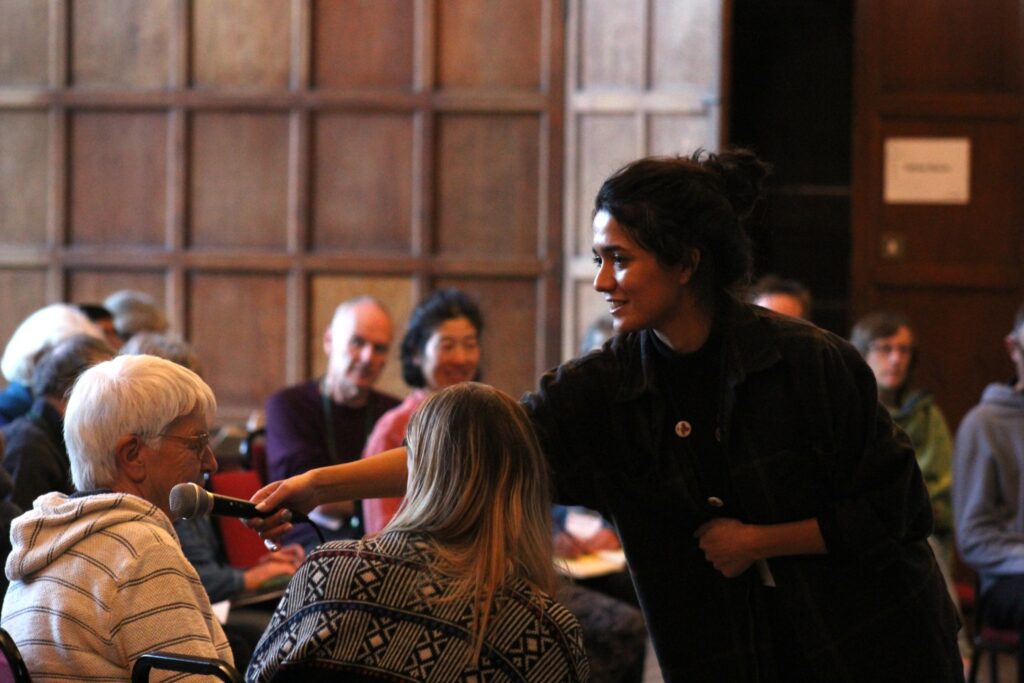
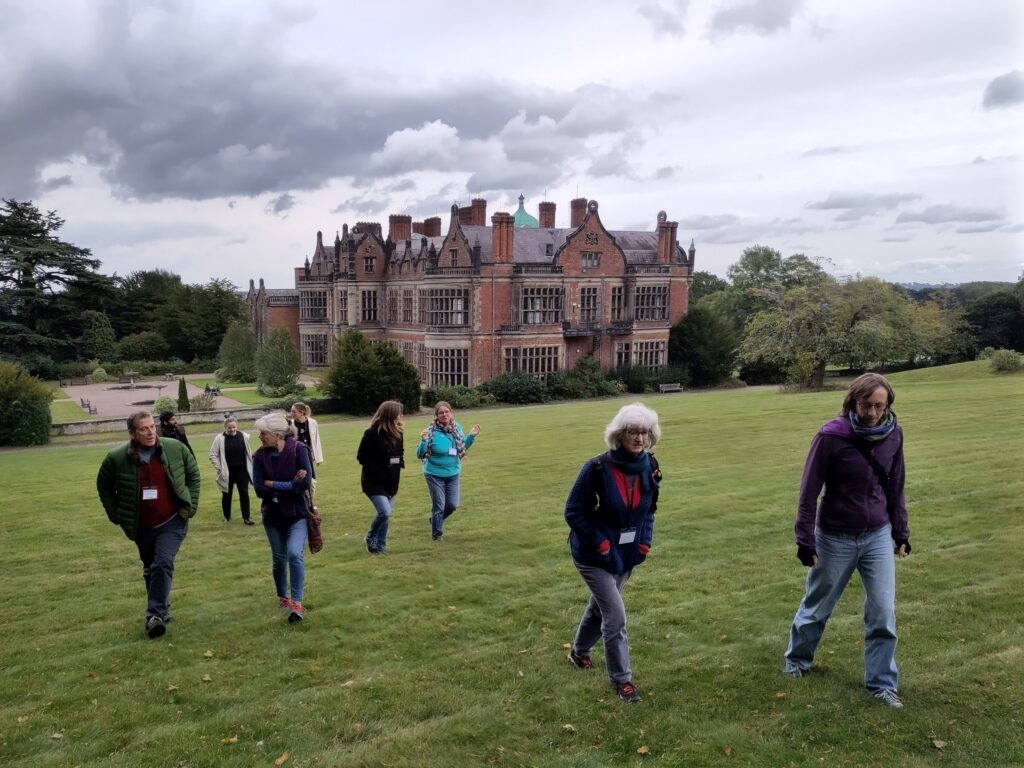
Sunday 25th September
We started Sunday by announcing our plans for a day of action in March! We’ll be releasing more details about this shortly – for now make sure to check out the slides from the day of action training, available in the folder for Sunday.
We continued with training on building diverse partnerships in our communities with Shaira Begum. The session introduced a community mapping template and we showed a video of a discussion with the Race Equality Centre, which is available in the folder for Sunday along with the slides from this session. We looked at the video from 38:05-44:50.
After a short break, we came back for two parallel sessions on the key arguments around divestment. A more introductory session took place with Rianna and Ben (UK Divest). The presentation and handout are available in the folder.
In this session we also mentioned a few other webinars and reports on this topic:
- Dr Ellen Quigley’s report on Cambridge University divestment and her “Divest or Engage” webinar from last year’s online gathering.
- Finance Q&A with Mark Campanale (Carbon Tracker) – which covers the financial arguments for divestment and explains stranded assets and the “carbon bubble” theory.
- Jeremy Grantham’s long-term study showing that you can divest with little financial consequence
The facilitated chat with Rob had no slides. Topics we discussed but did not have time to get into detail about in the session were recorded; we will aim to facilitate network conversations on these topics soon.
We closed the gathering with space for attendees to have their own conversations on topics of their choosing. If you had a good discussion that you want to continue, or you think we missed something you wanted to talk about, please get in touch on the Fossil Free Network email group or email us directly at ukdivest@gmail.com.
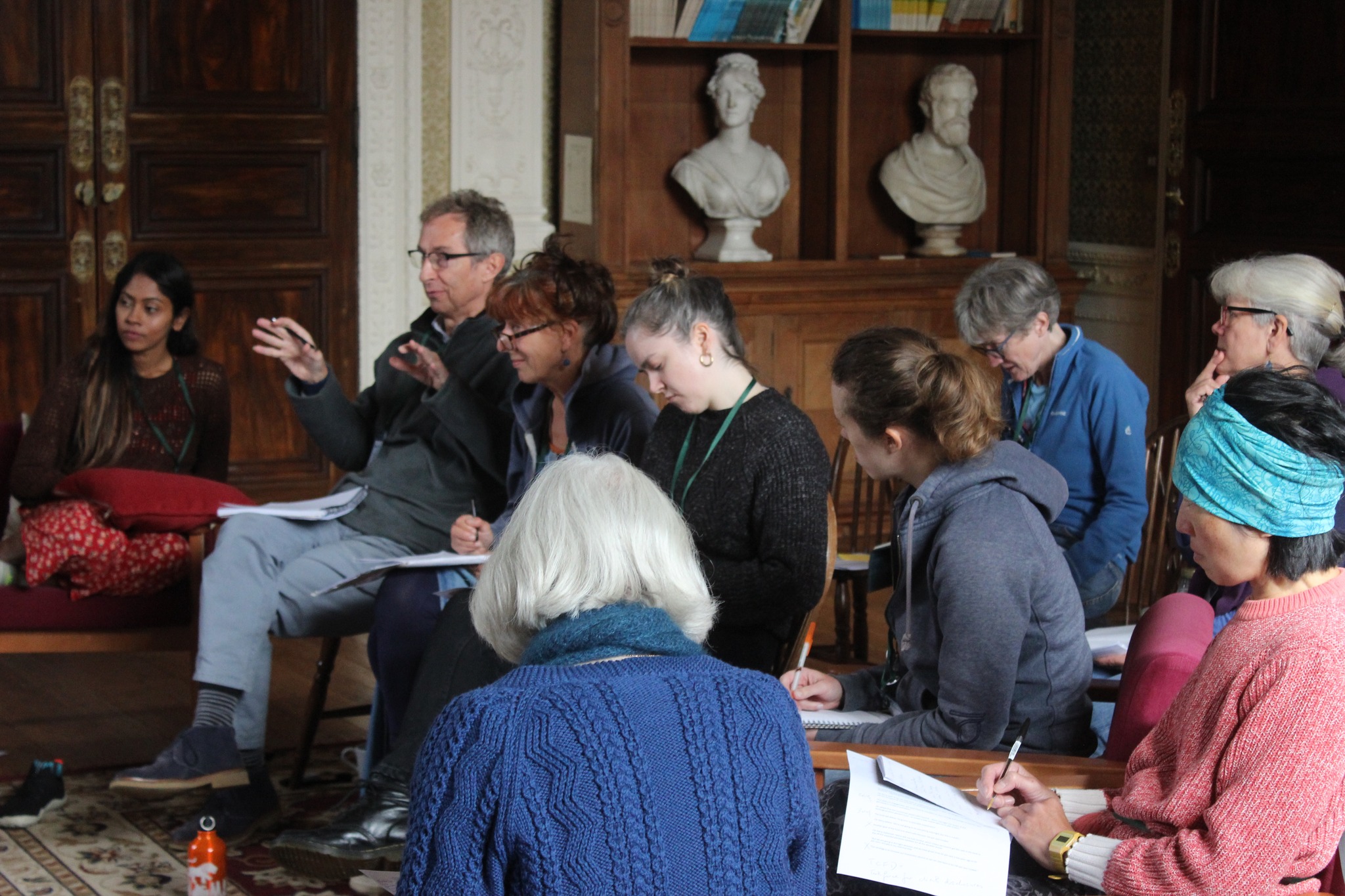
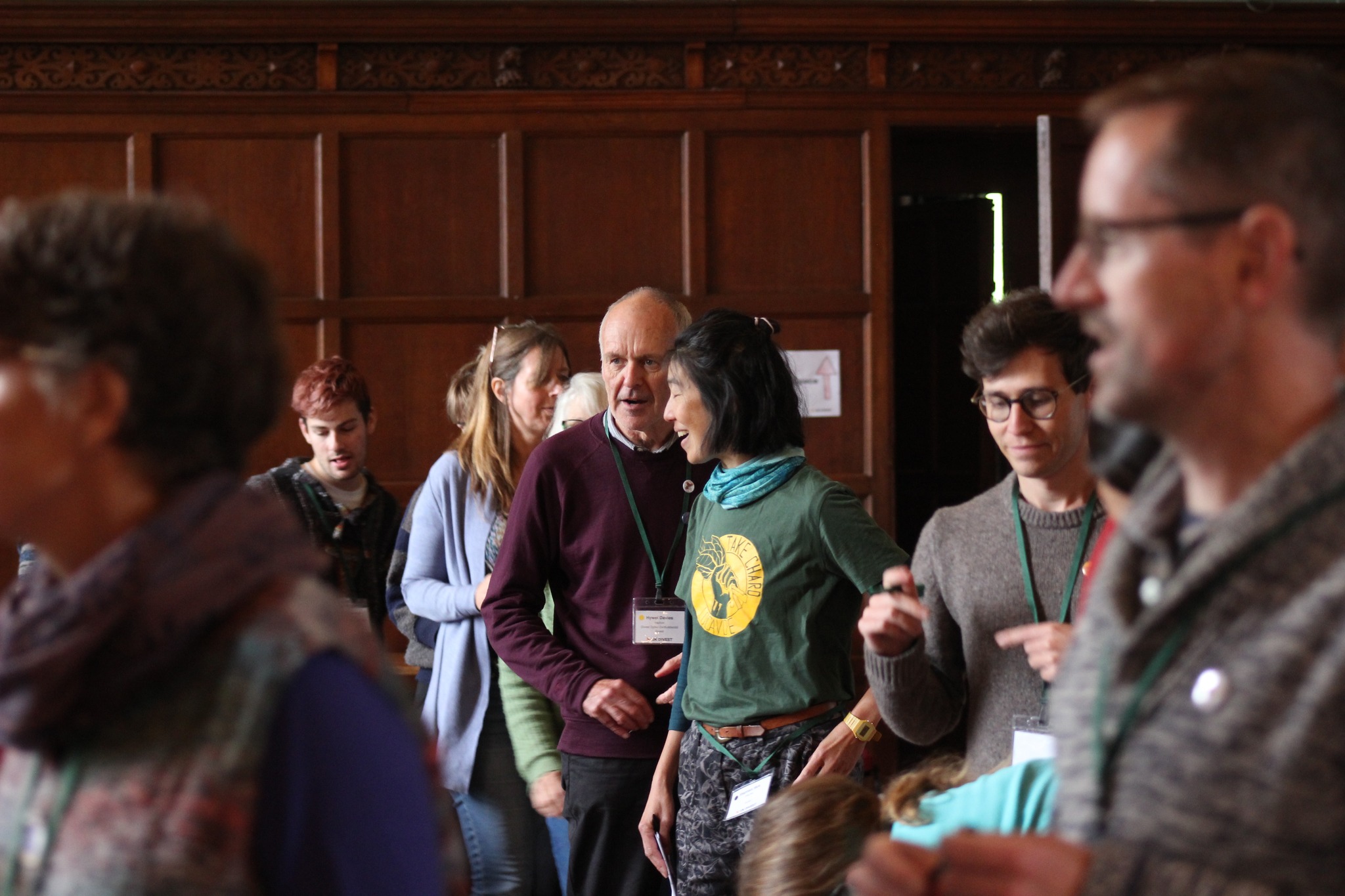
Complementary sessions
We had a few complementary sessions running alongside the main programme.
Some of you had a 1-1 coaching session with Ric, Rianna or Rob. If you didn’t get a chance to have one of these and would like to discuss your campaign with one of us, please get in touch at ukdivest@gmail.com and we will be delighted to arrange a chat with you!
There was a ‘Calm Space’ available for participants throughout the weekend. These are the films and podcasts we showed in case you weren’t able to make it along:
- How They Made Us Doubt Everything (Podcast, BBC Radio 4)
- Future Beyond Shell (Podcast, Spotify)
- Offshore (Documentary)
General support and resources
Finally, some links that we think you may also find useful:
- UK Divest resources page – videos, briefings and reports all about divestment!
- Divest your council – use the data dashboard to find out how much your local fund is investing in fossil fuels.
- Local groups map – see if there is a local group near you (or let us know if you’d like to be added to the map!)
- Councillor briefing – contains all the information you need for challenging arguments against divestment, and to be shared directly with your local councillors.
- The Commons Library – a great resource for groups looking to undertake campaign strategy exercises, including power mapping and critical path analysis.
If you’ve been inspired to take action, please get in touch with us at ukdivest@gmail.com — we can connect you with divestment campaigners near you, add you to our national organising list (the Fossil Free Network), and help you set up a new campaign in your area.
Our guest facilitators
A massive thanks to our amazing guests for running fantastic sessions at the Fossil Free Gathering! Their details are below.
James Marriott
James Marriott is an author, artist and campaigner. He co-founded climate justice collective Platform London, and has written a few excellent books – including ‘Crude Britannia: How Oil Shaped a Nation’ and ‘The Oil Road’.
Steven Sahota, Hope for the Future
Steven is Hope for the Future’s Regional Coordinator for Scotland and the North of England. In his work, he builds organisational partnerships and supports constituents in the north of England to meet their MP. Steven is based in the North of England and his background lies in democratic engagement; from working on housing policy at local government associations, to children’s centre management, encouraging marginalised groups to access their services.
Jamie O’Dell, Hope for the Future
Working at climate and democratic engagement charity Hope For The Future (HFTF), Jamie is responsible for overseeing and supporting their work providing communities and individuals seeking to engage their local councils on the climate crisis free, tailored, and long-term support. Jamie has also worked in HFTF’s research team, and recently oversaw a research project interviewing councillors from across the UK on their perspectives on how constituents can best engage councils on climate issues.
Cllr Alistair Bastin
Alistair is a scheme member representative on the Board of the Oxfordshire Pension Fund, which has assets of over £3bn, and around 70,000 members.
Alistair holds the following elected positions:
- Branch Chair of Oxfordshire County UNISON
- Pension Board representative on the Oxfordshire Pension Fund Climate Change Working Group
- Chair of the UNISON South East Local Government Pension Scheme Forum
- Scheme Member representative on the Oversight Board of the Brunel Pensions Partnership (£32bn; 700,000 members)
- Parish Councillor on North Hinksey Parish Council (non-party political)
- Chair of the Environment and Wellbeing Committee of North Hinksey Parish Council
Lyndsay Burtonshaw
Lyndsay is a facilitator and mentor. She/they work with young people and campaigners to create fun, hopeful and inclusive spaces to explore creative and life-affirming ways to make change happen. They have been involved in campaigns to shut down Yarls Wood, and resisting privatisation, and in 2017, they were part of a group of fifteen that blocked a deportation flight from Stansted airport. They currently work with Quaker activists, as a mentor for a young Friends of the Earth climate justice activist, and with young people on emotional wellbeing. They love mountain biking, sea swimming, art galleries, book reading and herbal medicine making.
An award-winning journalist, author and broadcaster, Rachel Shabi has reported extensively on the Israeli-Palestinian conflict and wider Middle East and now covers progressive politics in Britain. She writes for international publications including the Guardian, The New York Times, The Independent, The Nation and the New York Review of Books.
A regular broadcast commentator, you can find Rachel on news debates, papers reviews and programmes such as BBC Newsnight and Politics Live. She was a presenter on Sky’s The Pledge and a panellist on CNN Talk, providing analysis on global current affairs.
Shaira Begum
Shaira is an environmental justice organiser, working on health and climate projects with over 10 years experience as an environmental educator, trainer and facilitator.